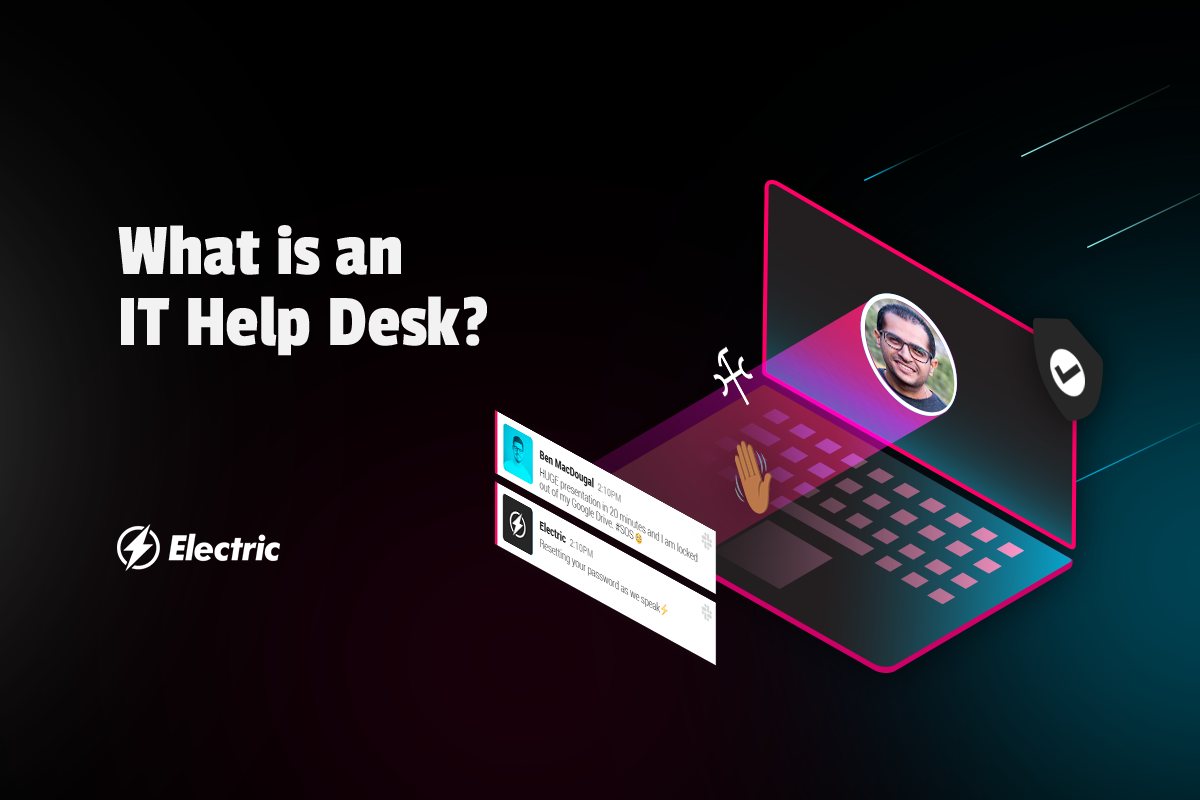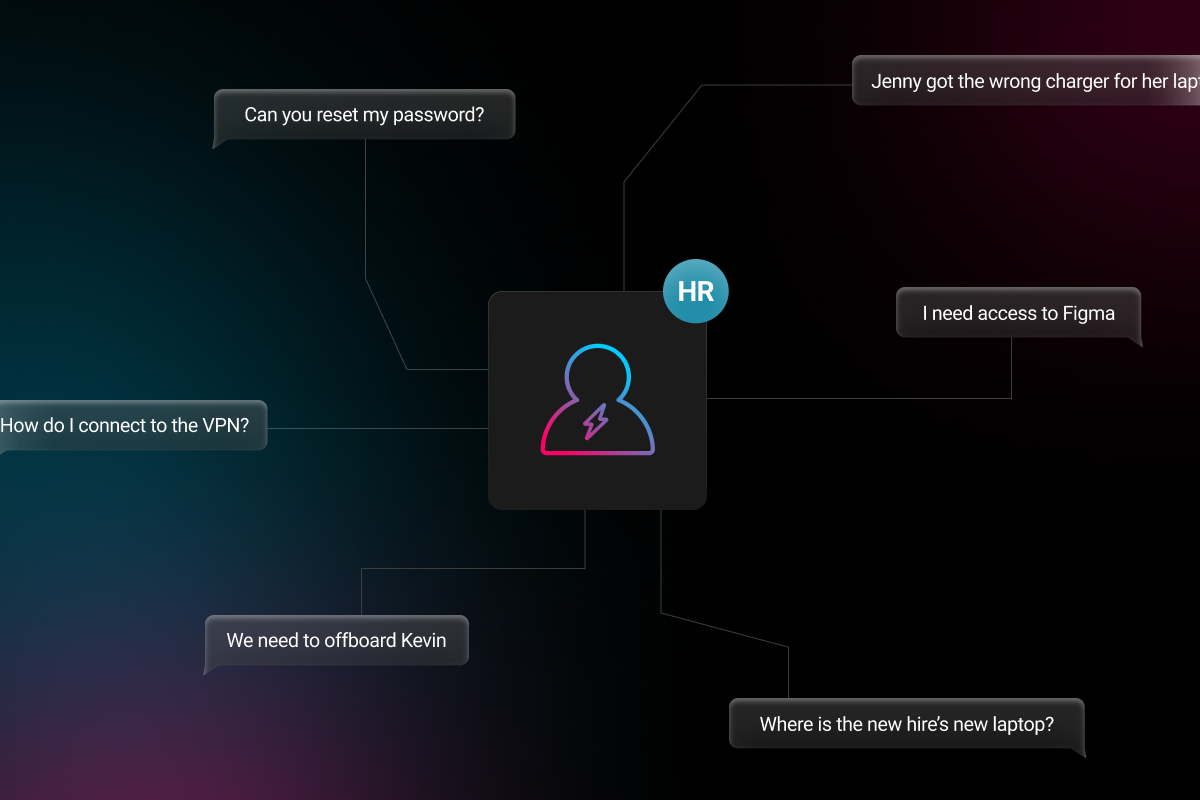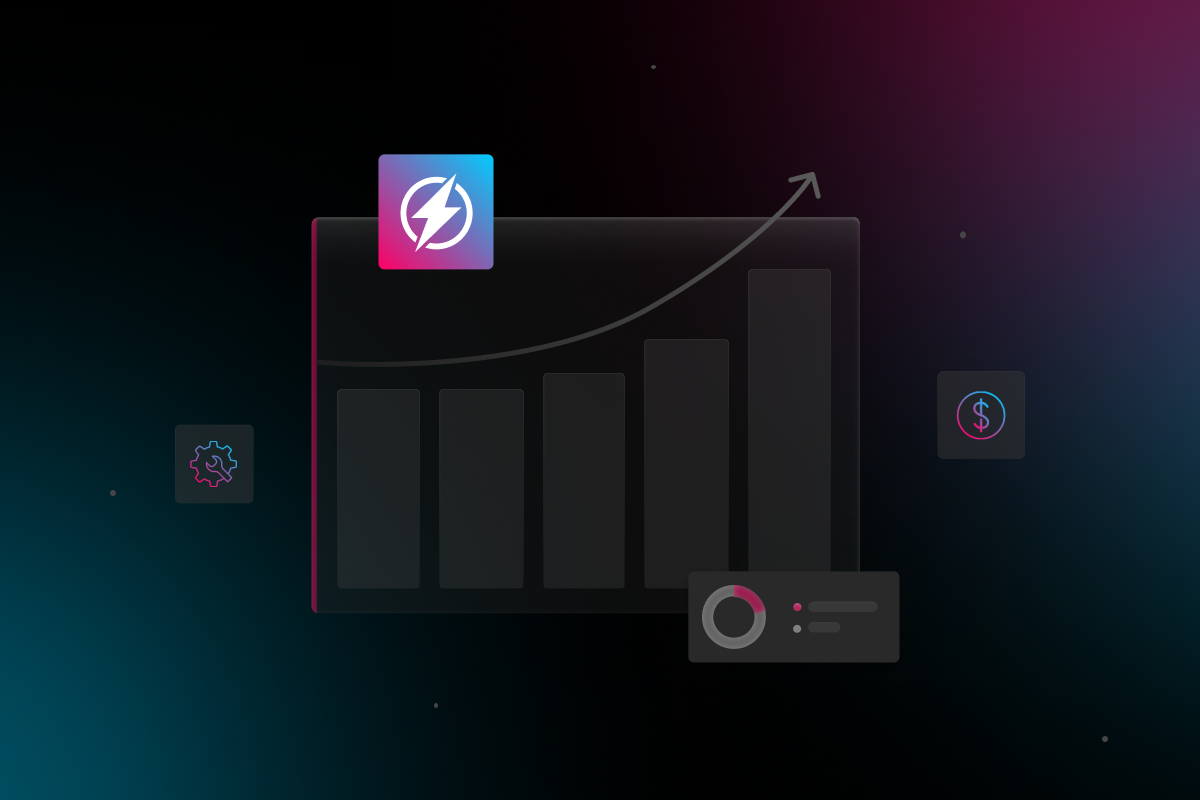
Gone are the days when employees had to physically bring their devices to an IT help desk at the office in order to access technical support. Today, thanks to the modern help desk, IT issues can be resolved quickly and remotely, without workers even leaving their desks or disrupting their day’s work.
What is an IT Help Desk?
An IT help desk, as the name suggests, is a person or team of people who help a company tackle the technical needs of its employees. A well resourced help desk ensures employee needs are addressed promptly, and it comes in especially handy in accelerating service delivery for remote workers.
Whether staff are working at home, in the office, or in a hybrid model between both locations, the core principle of an IT help desk is to make it easier to access support. For example, employees can chat in real-time with the IT team when they need assistance with any technical requests.
What is Help Desk Support?
Help desk support is the assistance employees receive when they reach out to the IT help desk. This support is provided by help desk technicians who are well trained to offer a variety of services. Depending on the nature of the company, the role of help desk technicians may vary, with some being required to have specialized training in particular software.
To offer the best experience and streamline efficiencies, technicians typically utilize a help desk ticketing system. This system assigns each request for support with a unique number and further groups them depending on their needs. Take, for example, an employee that needs help troubleshooting their internet connection and fixing a faulty printer. In this case, the ticketing system matches them with the right support technician and prioritizes the request — more information on this is in the next section.
What is a Help Desk Ticketing System?
A help desk ticketing system collects, organizes, and tracks employee support queries from different channels and helps manage them from a single place. Whether the support queries are coming via email, live chat, or phone, it makes requests easier to manage, and contributes towards providing a great support experience.
An added benefit of a tracking system is that help desk technicians can use it to predict the available workload and assess which requests are pending. Should they miss handling a particular task, the system can alert them.
What Does a Help Desk Technician Do?
On a typical day, an IT help desk technician can cover a variety of support requests. While their responsibilities can vary from one company to another, below are some of the common tasks undertaken by help desk technicians:
- Solving technical problems via live chat or over the phone
- Backing up, updating, and maintaining networks
- Collecting and analyzing feedback and suggesting improvement where necessary to improve the user experience
- PC cleaning, repair, and maintenance
- Guiding employees through a troubleshooting process until a solution is attained
- Identifying the best solutions to common problems and guiding employees on how to address them
- Training end-users on how to use new programs and systems
What is Help Desk Software?
Managing multiple requests isn’t an easy task for help desk technicians. While manually processing requests is possible, technicians can save time by leveraging help desk software.
Help desk software helps group all requests, incidents, or complaints in the most efficient way possible. For example, it can link all related emails, chats, and phone calls, and pass them to a single individual or appropriate team. In a nutshell, help desk software provides support in the following areas:
- Managing and reporting on ticket statuses – this makes it easier for employees to have real-time statuses on the progress of their tickets.
- Recording the crucial details of all requests, complaints, incidents, and other end-user issues.
- Reducing help desk technicians’ workload. End-users can sometimes use self-service portals to resolve their own issues instead of sending requests.
- Assigning and routing issues to the most suitable technician.
4 Benefits of IT Help Desk Outsourcing
There are many benefits of IT help desk outsourcing for your business. Below is a wrap-up of the advantages you can expect.
1. Cost savings
When you outsource help desk support, you eliminate or reduce the need to hire in-house staff to manage IT help desk requests. If you do have an internal team, acquiring an external IT help desk means you can reassign them to new duties that may be a better use of their time and skills.
2. Less workload for your team
While IT support is crucial to the growth of any business, you can have a third party take care of it while you and your team focus on other essential tasks vital to your company’s growth and operations.
3. Better user support
If you don’t want to invest in 24/7 support internally, outsourcing your IT help desk is the ideal solution, especially if your employees work across multiple time zones. That way, you can be sure that all requests will be addressed in a timely manner. Some companies, like Electric, provide an initial response to IT support questions in less than 10 minutes.
4. Fresh insights
When you outsource help desk support, you gain access to experts who are well versed in user support. This means you bring additional resources to your organization who can help pinpoint issues you may otherwise have missed. If you are looking to tap into the potential of other experts, then outsourcing help desk support is one way of achieving that.
Let Electric Power Your IT Help Desk
Ensuring your IT help desk team is equipped to offer the right support is crucial to the success of your business. At Electric, we power chat-based, lightning-fast IT support, so you can get back to work as quickly as possible. From the most basic password reset through device crashes, we’ve got your team covered. Get in touch with us today to speak with one of our experts and learn more about our IT help desk services.



